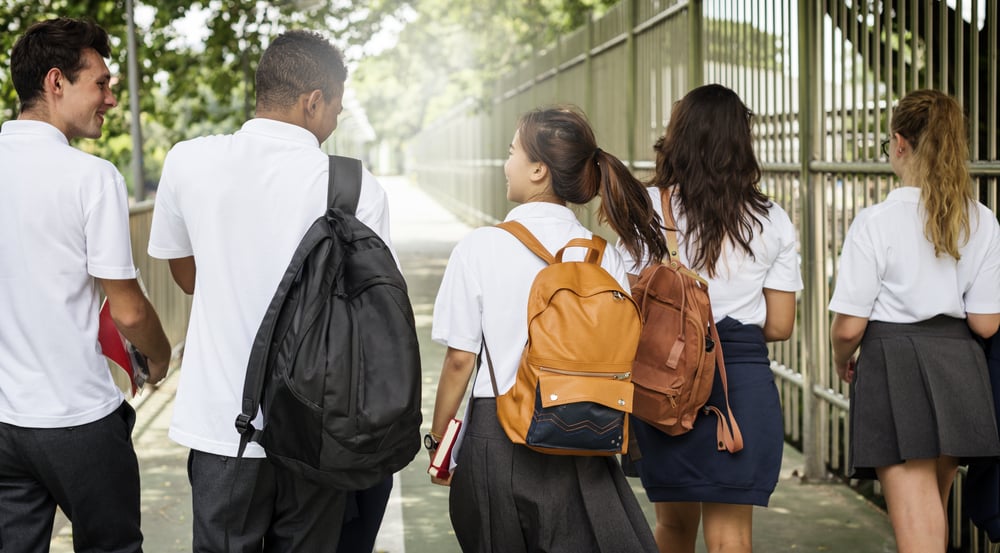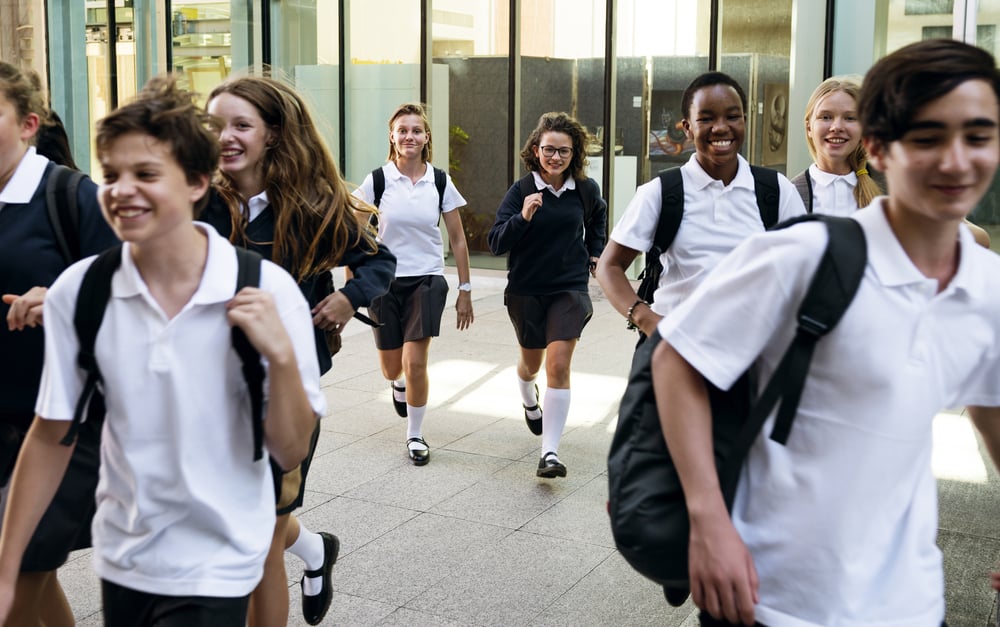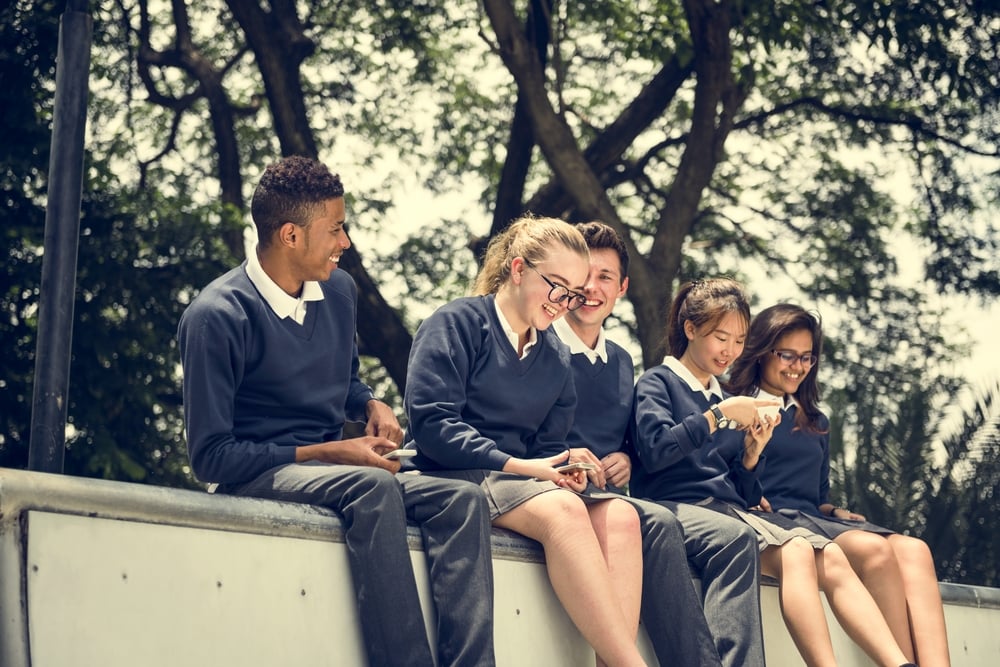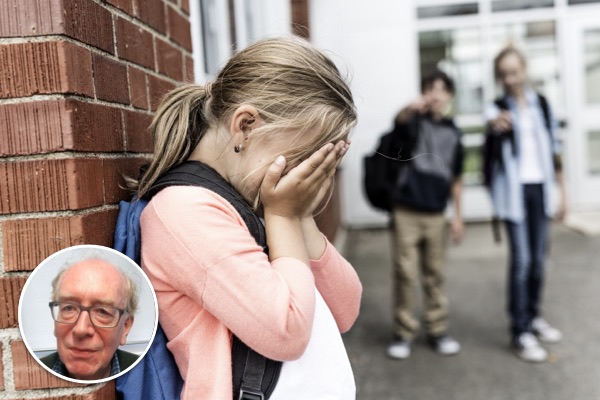Keeping Your Students Safe in the Summer Holidays
by Beth Passmore on Jul 17, 2023

A recent online poll from Barnardo’s has shown that this summer, more than ever, children in the UK are at greater risk of exploitation. Their research suggests that the holidays will be especially hard for families due to the continuing impact of the cost-of-living crisis. As teachers or support staff, it can be a worry to think of how your children will cope, what environments they might find themselves in or who they will talk to if they’re worried.
What is the concern?
One of the key concerns this year, especially, is financial vulnerabilities within our families, where we’ve seen an increase in fuel and food poverty. The same Barnados poll found that 1 in 4 families can’t fund childcare or holiday clubs this year, and 1 in 5 won't be able to afford time off work. As a result of this, young people are likely to be on their own more, finding things to occupy their time which can lead to isolation or perhaps neglect.
Another concern for our young people during the holidays is increased exposure to abuse at home. For those children who live in homes where abuse regularly exists, the holidays bring an increase in exposure to this abuse and a greater risk of young people being victims of abuse themselves. Alongside this, young people may see an increase in relationship tensions and stresses within their family due to spending more time at home, which in turn may impact their well-being.
A prevalent concern for children all year round, but particularly in the holidays, is E-safety. Some young people have very limited safeguarding measures in place at home, and so they are much more vulnerable to things like cyberbullying, grooming, exploitation and radicalisation during the holidays. Barnado’s found that 71% of young people asked said that they spend more time online in the holidays, 1 in 10 said they communicate with people they’ve never met, and almost 1 in 10 will meet up with someone they’ve only met online this summer.
What can I do?
Looking at the concern can feel overwhelming, and you might feel like there is little you can do to help and protect your students from these risks. But there is much that can be done to both prepare young people for the holidays but also support them through it. Here are some ways for you to consider:
-
Safeguarding responsibilities
In preparation for the holidays, it’s important for staff to be extra vigilant in looking out for those most vulnerable or at risk by reporting any changes in their behaviour or concerns. It’s also helpful to make sure safety plans are in place for these children, and any external services working with them are updated. It’s a good idea to make a plan for who can be contactable throughout the holidays if a family needs to get in touch to report a safeguarding concern or if an external organisation needs to get in touch. If there is a period of time when no one in school is contactable, you could signpost to some other sources of support on your answerphone message and out-of-office emails. It may also be helpful to have a self-reporting system available for young people to report concerns for themselves while they’re away from school.
-
Teaching and equipping
One way you can support students in the lead-up to the holidays is by teaching and equipping them on potential risks in their local environment and online. Teaching them about online safety, personal safety and how to say no if they feel unsure or unsafe are all invaluable life skills for them to have. You could do some resilience-building activities together or mindfulness exercises. Get them to think about who they can talk to if they are concerned or scared. You could provide them with the numbers for emergency services and other helplines if they need them. It may be helpful to do a similar thing for parents and carers too. You could send home a list of contact details for local and national organisations and charities that can provide support, such as debt management charities, food banks, mental health crisis numbers, social care, abuse support etc.

-
Relationship building
One of the best things you can do for students is to work on building safe and stable relationships with them whilst they are in school. Checking in with them and asking them open questions can help them feel valued and understood. The more time you invest in your relationships with them, the more open they will feel in time to talk to you about their concerns. This will help you better understand their situations, and so will equip you to support them better. If children have good relationships in place in school, they will feel much more comfortable and confident to share their concerns.
-
Safety plans
There may be particular students that it would be helpful to make a safety plan. These are plans you can make with them, including who they should talk to if they’re feeling unsafe and where they can go for help. Get them to think about where they feel most safe and what things have helped them in the past. This can be something they take home with them so they can refer back to it throughout the holidays. Similar to the safety plan, some children might benefit from creating a mental health first aid kit. This would be for young people who are struggling with their mental health and can help remind them of ways to cope with the holidays. This would include ways they can relax, distract themselves, calm down and who to talk to if they need support.
-
Special provision
Throughout the holidays, it may be helpful to have members of staff available at different points to check in with certain families on the phone. It might also be suitable to offer some families free access to holiday clubs or activities running at school during that time. This can be done with discretion but can be a generous offer for those families most in need. It may also be that some of the support children receive during term time can be continued through the holidays, such as weekly counselling sessions.
-
Returning to school
As young people return to school, check in with them, particularly those who are most vulnerable. Give them the opportunity to tell you about their holidays. They may not immediately share concerns, but reminding them that you are there to listen and support them will give them reassurance. Be observant of changes in their mood, behaviour and appearance, being prepared and aware that there may be more disclosures following a break from school.

We can’t always protect our young people and families from risk, but if we prepare them with the best resources, skills and support available to them, we are giving them the best chance of keeping safe this summer.
Useful Resources:
Childline www.childline.org.uk
Under 19s can call, chat online or email about any problem, big or small. 24/7 helpline: 0800 1111
The Mix www.themix.org.uk
For those under 25s, a helpline, email and web chat for anything that’s troubling them.
Helpline open daily 4-11 pm: 0808 808 4994
Email: www.themix.org.uk/get-support/speak-to-ourteam/email-us
Webchat is open daily 4-11 pm: www.themix.org.uk/getsupport/speak-to-our-team
YoungMinds
YoungMinds Crisis Messenger Provides free, 24/7 text support for young people experiencing a mental health crisis. Text YM to 85258
Kidscape www.kidscape.org.uk
Equipping young people, parents and professionals with the skills to tackle bullying and address safeguarding issues.
Parent Advice Line is open Monday-Wednesday from 9.30 am-2.30 pm. Phone: 020 7823 5430
If you think your school could benefit from our SEND and mental health services, please get in touch.
- General mental health (35)
- General Speech & Language (32)
- School Issues (26)
- Counselling (24)
- Primary Schools (24)
- Classroom Behaviour (23)
- Anxiety (22)
- Speech and Language Therapy (22)
- Absenteeism (20)
- SENCOs (20)
- Safeguarding (17)
- Secondary & Sixth Form Schools (16)
- Social Communication (16)
- Funding (14)
- MATs (14)
- Generalised anxiety (13)
- Autism Support (10)
- Language Delay/Disorder (10)
- Relationship Issues (10)
- SEMH (10)
- ADHD Support (7)
- Speech Sounds (7)
- AAC (6)
- Autism (5)
- Hearing Impairment (5)
- Depression (4)
- Selective Mutism (4)
- Anger (3)
- Cleft Lip/Palate (3)
- Downs Syndrome (2)
- Ofsted (2)
- Phobias (2)
- Stammering (2)
- Loss (1)
- Self-Harm (1)
- Suicidal Thoughts (1)
You may also like
These related stories

Anxiety and Hyperactivity: A Teacher's Guide

English as an Additional Language (EAL) or a Speech, Language and Communication Need (SLCN)?
